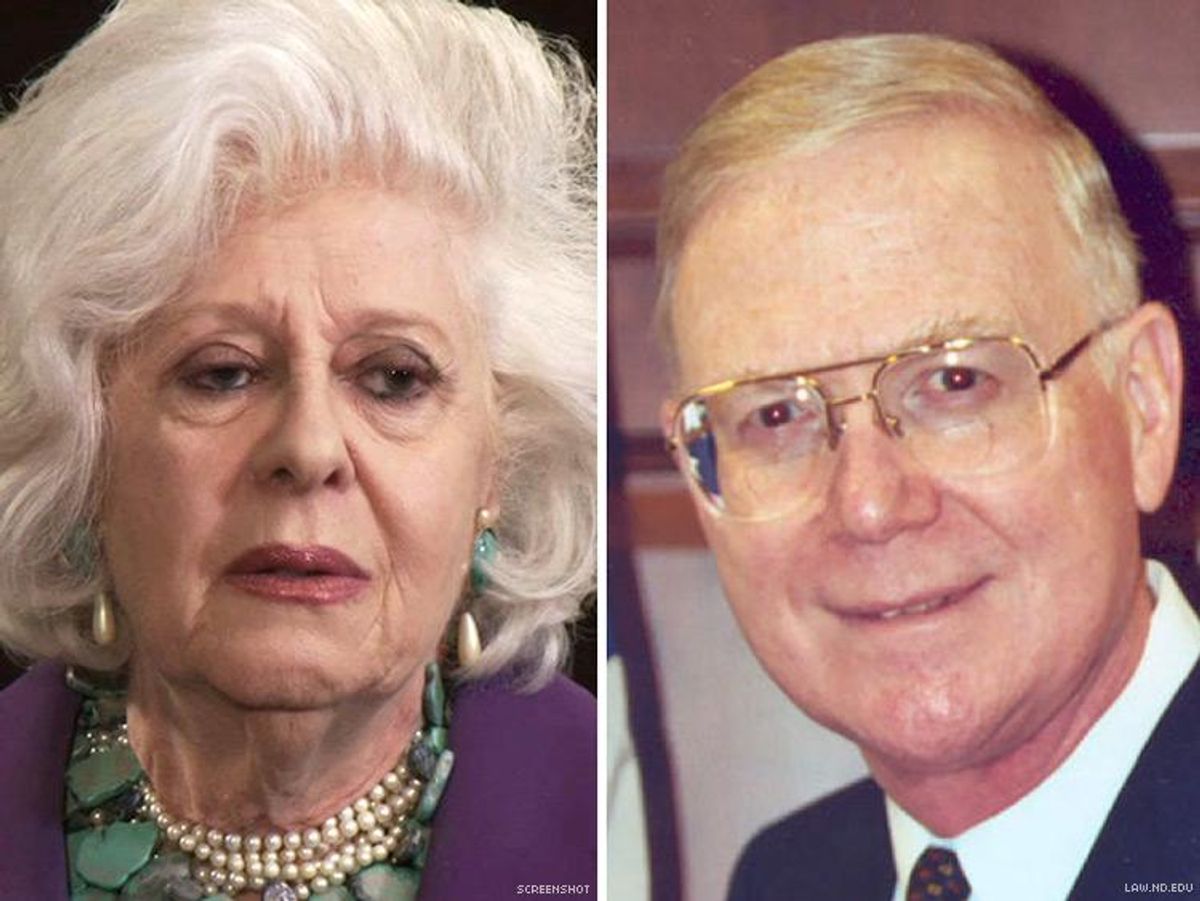The federal appeals court has rejected an argument that a civil rights law protects against discrimination based on sexual orientation.
The 7th Circuit Court of Appeals ruled Thursday that plaintiff Kimberly Hively--a part-time professor who argued that she was not promoted due to antigay bias--was not protected under Title VII of the Civil Rights Act of 1964.
The ruling declared such protections went "beyond the scope of the statute," which prohibits discrimination based on race, religion, sex, and national origin. Only the Supreme Court or Congress could determine Title VII extended to sexual orientation, it determined.
Previously, the decision Macy v. Holder expanded the protections of sex-based discrimination to include transgender workers. In a preliminary ruling in 2015, U.S. District Court Judge Colleen Kollar-Kotelly also determined that a gay worker, for experiencing discrimination that stems from noncomformity to "gender stereotypes associated with men," could also find relief under Title VII.
In the over 40-page document of this most recent decision, U.S. Circuit Judge Ilana Rovner, who was joined in part by Judge Kenneth Ripple, noted the complex "legal landscape in which a person can be married on Saturday and then fired on Monday for just that act." However, Rovner challenged the logic of the 2015 ruling from the Equal Employment Opportunity Commission supporting Hively's argument.
"The idea that the line between gender non-conformity and sexual orientation claims is arbitrary and unhelpful has been smoldering for some time, but the EEOC's decision ... threw fuel on the flames," stated Rovner, citing cases from 1984 to 2000 that determined anti-LGBT discrimination did not fall under Title VII.
Rovner did not rule out the legal possibility of connecting discrimination based on sex to sexual orientation. But she stressed this connection would have to be determined by a higher court or Congress, which has avoided rulings and legislation on the issue.
"Until the writing comes in the form of a Supreme Court opinion or new legislation, we must adhere to the writing of our prior precedent," Rovner concluded.
Sarah Warbelow, the legal director of the Human Rights Campaign, said she was "deeply disappointed" in the decision, which failed to join "the growing consensus" that nondiscrimination protections should include sexual orientation. Warbelow said the ruling underscored the need for legislative action.
"While the court made its decision based on what it viewed as precedent, it did make clear however that there is no coherent basis for excluding sexual orientation from other types of sex discrimination claims," Warbelow stated. "The court's decision makes the need even more urgent for Congress to pass the Equality Act, making explicitly and permanently clear that LGBTQ people are protected under our nation's civil rights laws."
Read the full ruling here.


















































































